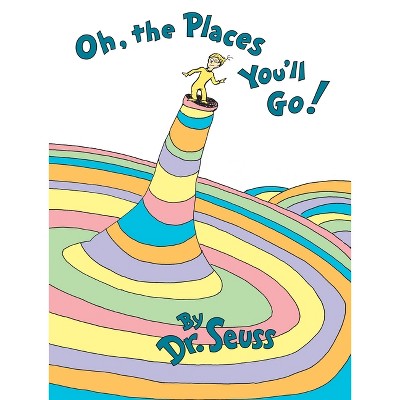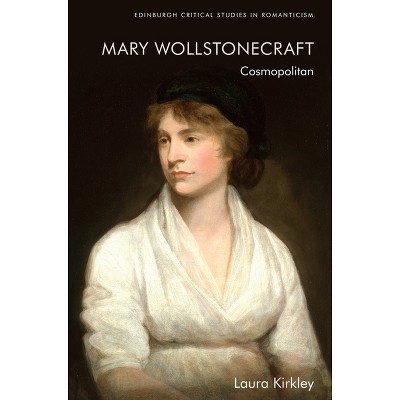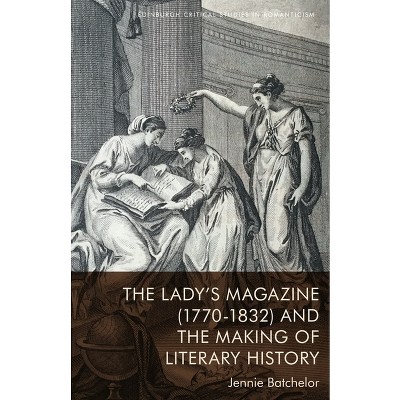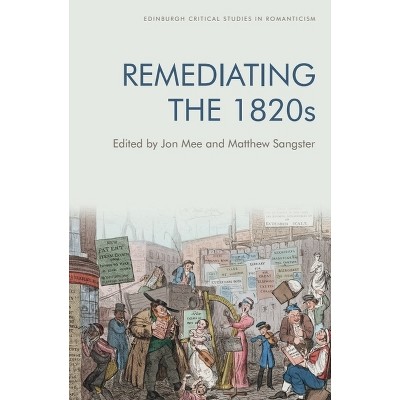Dialectics of Improvement - (Edinburgh Critical Studies in Romanticism) by Gerard Lee McKeever (Hardcover)

About this item
Highlights
- Explores the nature of Scottish Romanticism through its relationship to improvementProvides new insight into the concept of 'improvement'Advances current thinking on Scottish RomanticismIdentifies how improvement was involved in key aesthetic innovations in the periodIncludes case studies across poetry, short fiction, drama and the novelThis book develops new insight into the idea of progress as improvement as the basis for an approach to literary Romanticism in the Scottish context.
- About the Author: Gerard Lee McKeever is a British Academy Postdoctoral Fellow in the School of Critical Studies at the University of Glasgow.
- 232 Pages
- Literary Criticism, European
- Series Name: Edinburgh Critical Studies in Romanticism
Description
About the Book
This book develops new insight into the idea of progress as improvement, as the basis for an approach to literary Romanticism in the Scottish context.
Book Synopsis
Explores the nature of Scottish Romanticism through its relationship to improvement
Provides new insight into the concept of 'improvement'Advances current thinking on Scottish RomanticismIdentifies how improvement was involved in key aesthetic innovations in the periodIncludes case studies across poetry, short fiction, drama and the novelThis book develops new insight into the idea of progress as improvement as the basis for an approach to literary Romanticism in the Scottish context. With chapter case studies covering poetry, short fiction, drama and the novel, it examines a range of key writers: Robert Burns, James Hogg, Walter Scott, Joanna Baillie and John Galt. Improvement, as the book explores, provided a dominant theme for literary texts in this period, just as it saturated the wider culture. It was also of real consequence to questions about what literature is and what it can do: a medium of secular belonging, a vehicle of indefinite exchange, an educational tool or a theoretical guide to history.
From the Back Cover
Explores the nature of Scottish Romanticism through its relationship to improvement This book develops new insight into the idea of progress as improvement as the basis for an approach to literary Romanticism in the Scottish context. With chapter case studies covering poetry, short fiction, drama and the novel, it examines a range of key writers: Robert Burns, James Hogg, Walter Scott, Joanna Baillie and John Galt. Improvement, as the book explores, provided a dominant theme for literary texts in this period, just as it saturated the wider culture. It was also of real consequence to questions about what literature is and what it can do: a medium of secular belonging, a vehicle of indefinite exchange, an educational tool or a theoretical guide to history. Gerard Lee McKeever is a British Academy Postdoctoral Fellow in the School of Critical Studies at the University of Glasgow.Review Quotes
Dialectics of Improvement is a wonderfully insightful study of the interrelated currents of Enlightenment and Romanticism in Scottish literature. Covering commercial, religious, technological, aesthetic, moral, political, educational and scientific "improvement", it reveals how contested this concept was and how important it continues to be for our understanding of the period.-- "Angela Esterhammer, University of Toronto"
[...] with its meticulously researched case studies, and convincing argumentation, Dialectics of Improvement makes a valuable contribution to ongoing debates about the nature of Scottish Romanticism, the role of genre in the Romantic period, and the politics of the aesthetic.--Catherine Jones, University of Aberdeen "Eighteenth-Century Scotland"
Comprising attentive readings of texts astride different contexts, this humanely marshalled intellectual history provides firm foundations for a whole range of studies of Scottish Romanticism or other Romanticisms that might follow.--Daniel Cook, University of Dundee "Scottish Literary Review"
Gerard McKeever deconstructs the binary between Scotland's modernizing Enlightenment and the vernacular cultures (Scots and Gaelic) [...] It is this "more openly unresolved, dialectically complex attitude" (24) that McKeever brings to bear on improvement that pushes it away from a stylized opposition to romance and into the much more conflicted territory of Romanticism.--Alexander Dick, University of British Columbia "European Romantic Review"
Ideas of improvement underpin Enlightenment thought and Romantic reactions, and McKeever's study skilfully offers nuanced readings of improvement that are attuned to historical, economic, and philosophical debates and innovations, and that draw attention to diverse literary genres.--Amanda Blake Davis "The Year's Work in English Studies"
Improvement permeated all levels of Scottish society, interconnected with myriad disciplines, and was a dominant concern of its literature. Dialectics of Improvement is a significant contribution to our understanding of the Romantic period and the extent to which that literature grappled with ideas of improvement.--Ralph McLean "Burns Chronicle"
McKeever's well-crafted and thoroughly researched monograph makes a clear case for the continued study of Scottish Romanticism and its relevance to our modern world.--JoEllen DeLucia, Central Michigan University "The BARS Review"
The judges were highly impressed by this book - it's ambitious, admirably clear, and underpinned by meticulous research and close readings, covering both well-known canonical writers (Burns, Scott, Hogg) and less familiar writers/texts (Baillie, Galt). It's impressively interdisciplinary: philosophy, historiography, textual criticism and editing history, print culture, politics and religion are all in the mix.This an excellent work of scholarship, insightful and enriched by many incisive and subtle readings of less familiar texts.--Judging Panel "BARS First Book Prize 2021"
About the Author
Gerard Lee McKeever is a British Academy Postdoctoral Fellow in the School of Critical Studies at the University of Glasgow. He has published a range of scholarship on eighteenth and early nineteenth-century literature, with articles in leading journals including Studies in Romanticism and a book co-edited with Alex Benchimol (Routledge, 2018). He is the author of Dialectics of Improvement (EUP 2020).
Shipping details
Return details
Trending Fiction











